Recently, the Supreme People’s Court (SPC) research team held a symposium with deputies to National People’s Congress (NPC) and members of the Chinese People’s Political Consultative Conference (CPPCC) to review the performance report of courts in Liaoning Province. Yu Miaojie, a deputy to the National People’s Congress (NPC), Fellow of the International Economic Association, and President of Liaoning University (LNU), attended the symposium and delivered remarks. The full text is reproduced below:
“With determined and pragmatic efforts, we will achieve sustained progress!”
— Remarks at the SPC research team’s inspection of Liaoning courts and the Second Circuit Court of the SPC
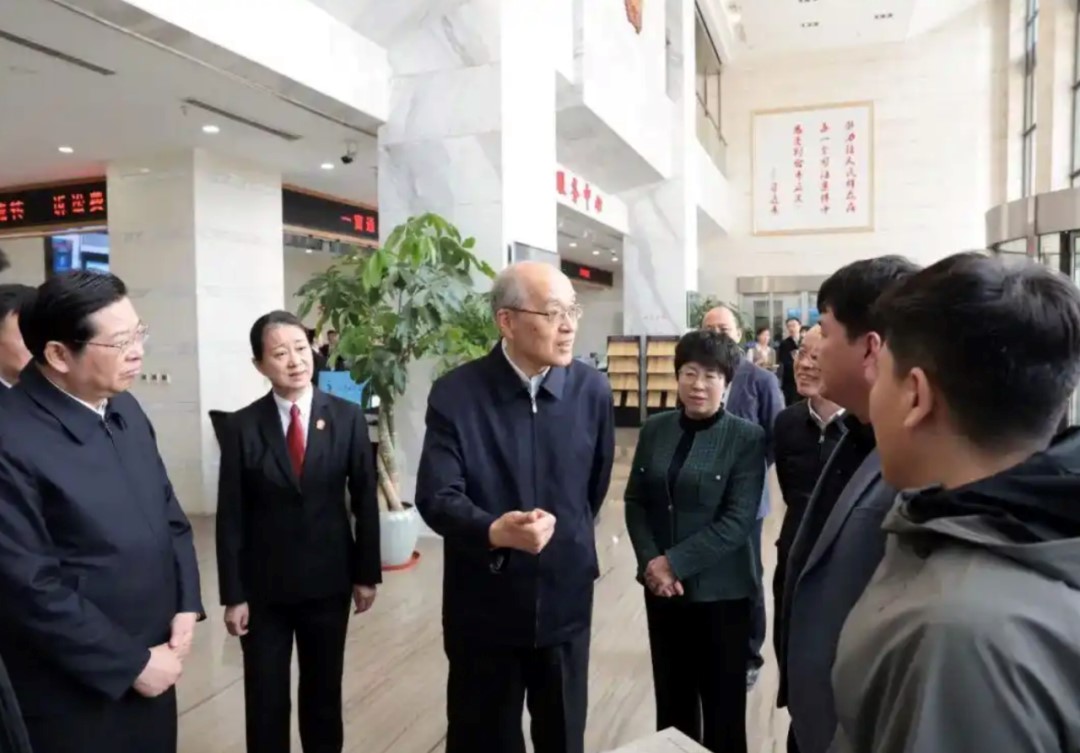
Zhang Jun, Party Secretary of the Leading Party Group and President of the SPC, led a research delegation to conduct an inspection at the Bayuquan District People’s Court in Yingkou City.
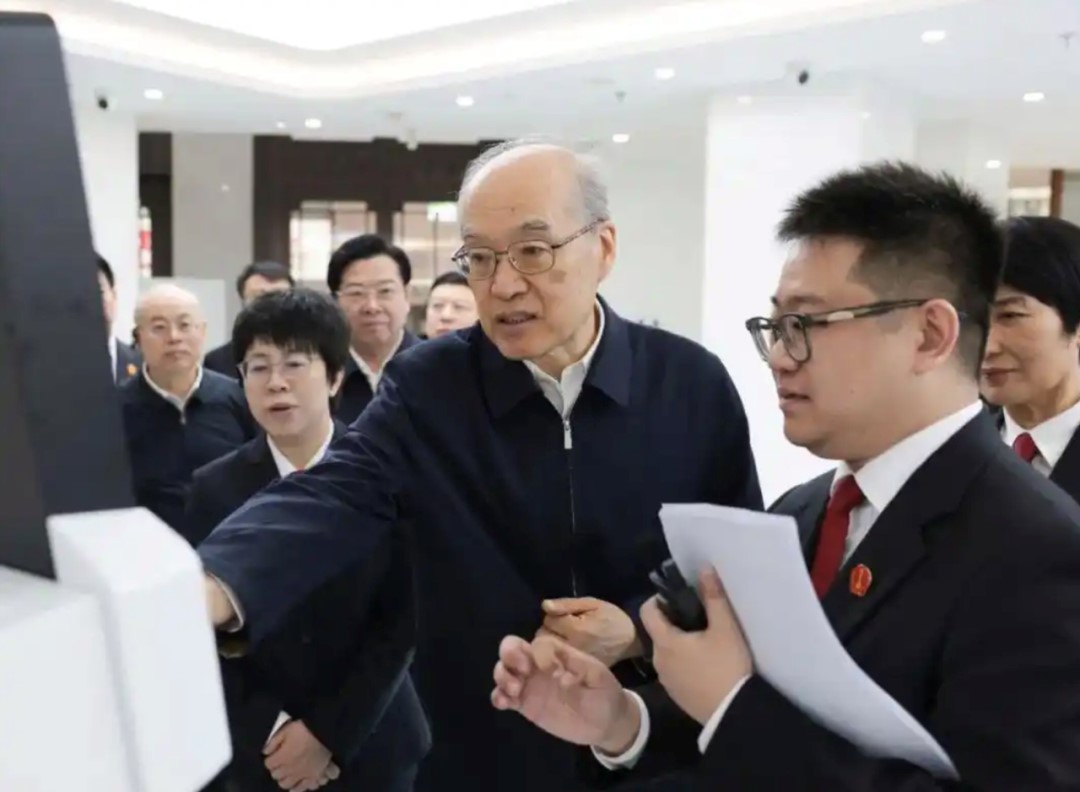
The SPC research team conducted an inspection at the Heping District People’s Court in Shenyang City.
The Party Group of the SPC has repeatedly emphasized the rigorous implementation of the “Ninety Percent Execution”. With the relevant arrangements and requirements clearly outlined, courts across the country have been continuously and thoroughly implementing the spirit of the NPC and the CPPCC in conjunction with local realities. They have earnestly carried out educational activities to deeply understand and implement the spirit of the Central Committee’s “Eight-Point Decision”. To assess the progress, from March 25 to 27, Zhang Jun, the Party Secretary and President of the SPC, led a research team to conduct investigations in the courts of Liaoning Province.
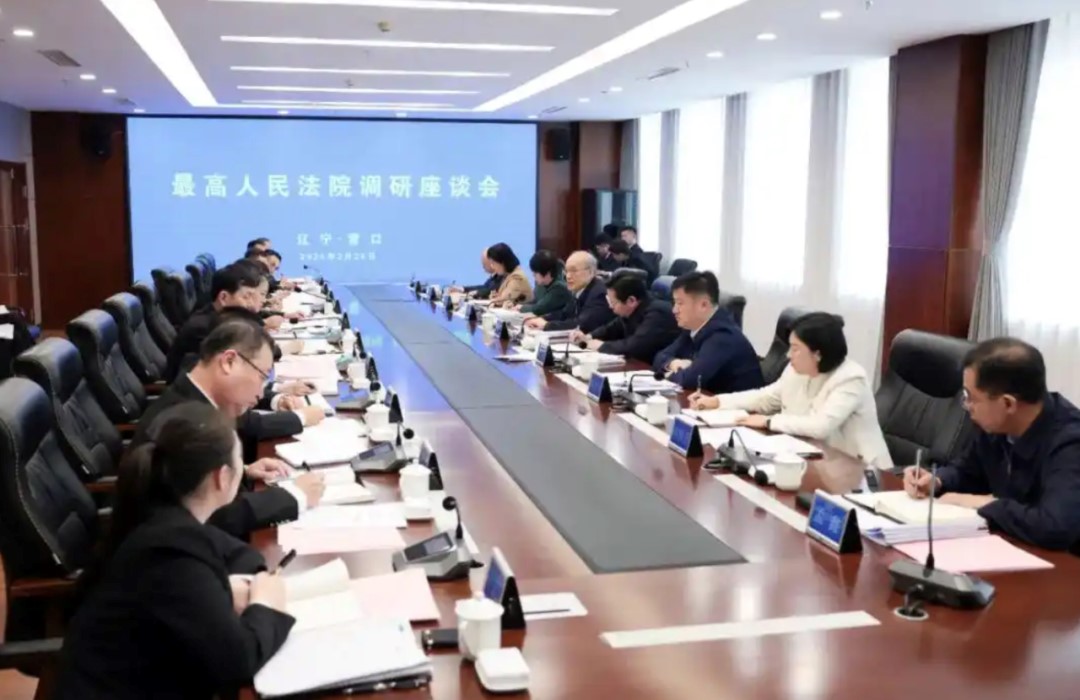
The SPC research team held a symposium with six presidents of relatively underdeveloped basic-level courts at the national and provincial levels.
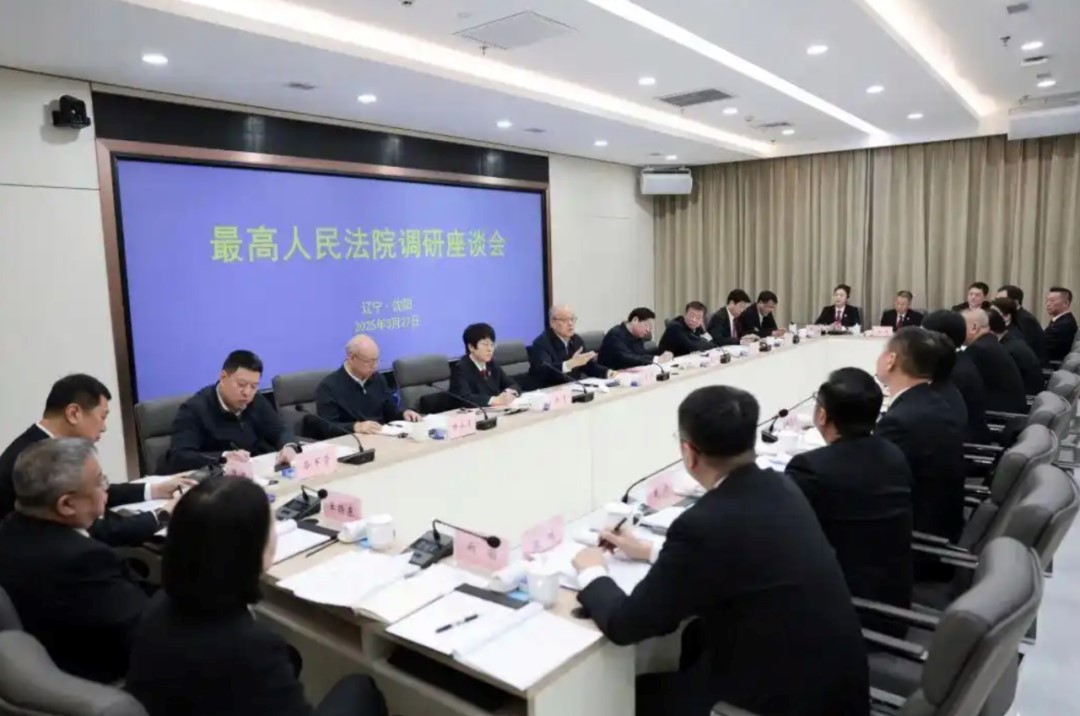
The SPC research team held a symposium with 15 presidents of basic-level courts at the Heping District People’s Court in Shenyang City.
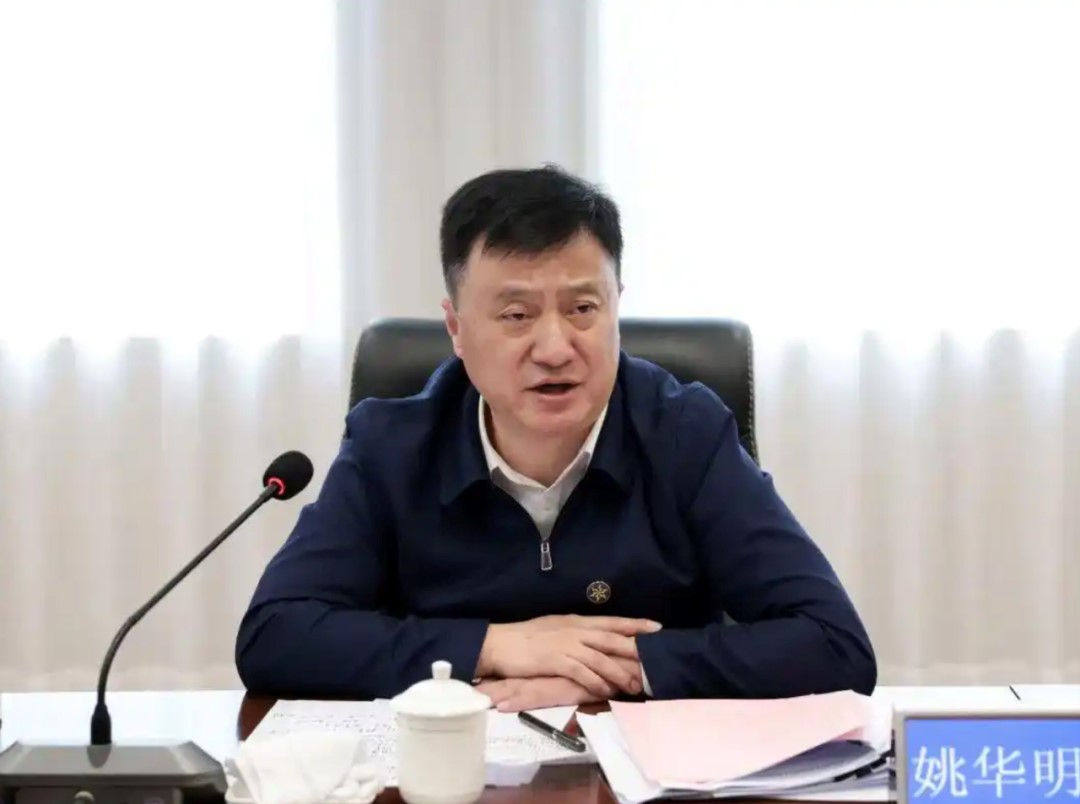
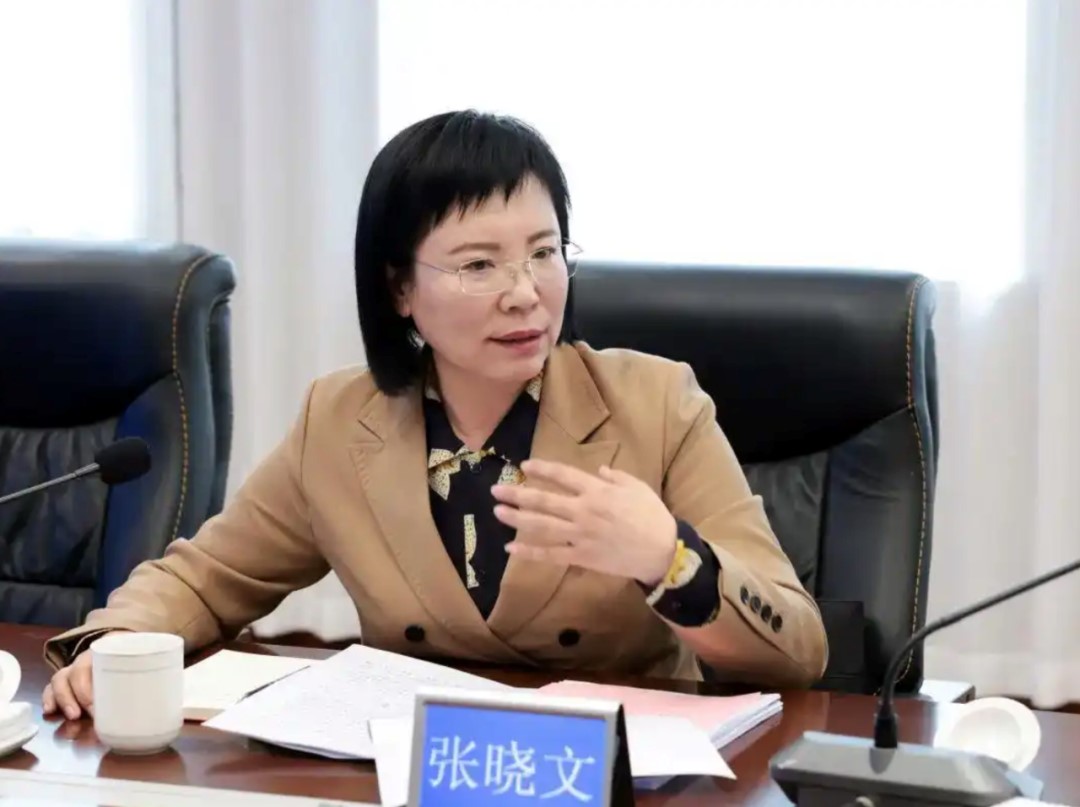
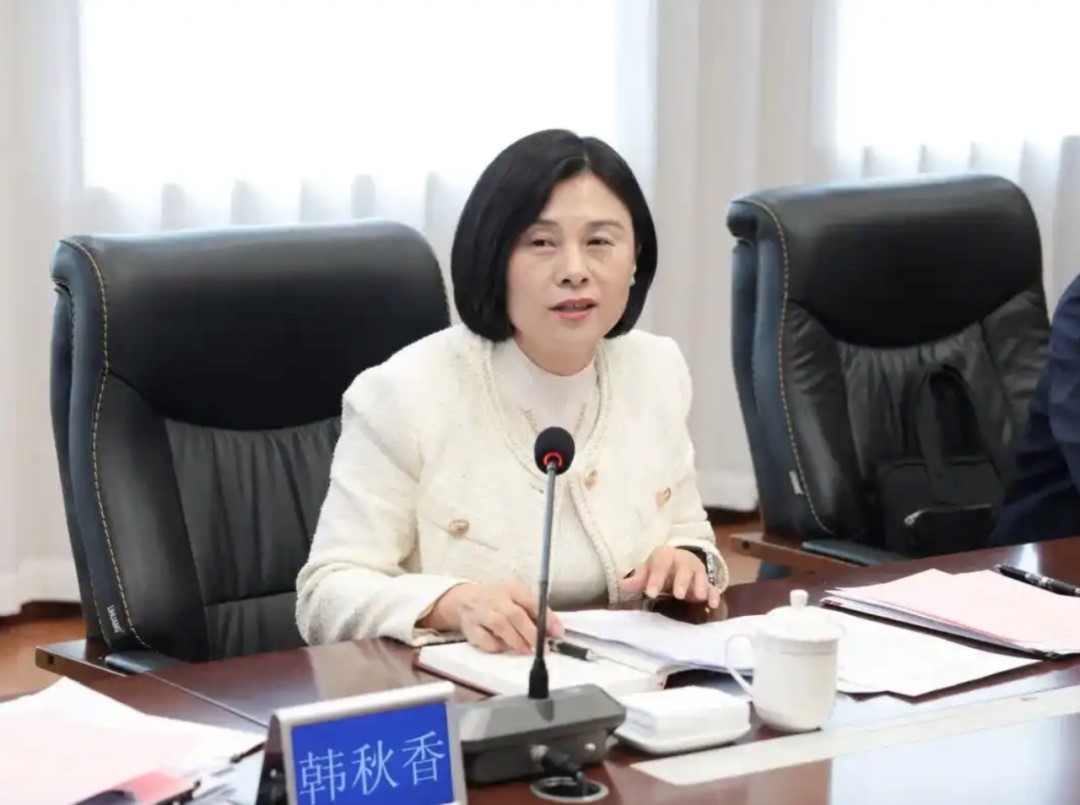
NPC deputies Yao Huaming, Zhang Xiaowen, and Han Qiuxiang delivered speeches at the symposium.
At the People’s Court of Bayuquan District, Yingkou City, the research team held a symposium with six presidents of relatively underdeveloped basic-level courts at national and provincial levels. They analyzed weaknesses in judicial adjudication and identified key issues including insufficient role fulfillment of key leadership positions, inadequate implementation of trial management, and lax team management. At the People’s Court of Heping District, Shenyang City, the research team convened with 15 basic-level court presidents. Discussions deliberately avoided prepared report readings to focus solely on existing problems, formulating practical measures including solidifying dispute resolution mechanisms, utilizing the Legal Answers Network and case databases for post-judgment explanations, standardizing pre-litigation preservation procedures, and supporting the standardized development of comprehensive governance centers. This grassroots-focused, problem-oriented investigation approach, though posing certain challenges and pressures, led to more substantive outcomes for participants. The NPC deputies Yao Huaming, Zhang Xiaowen, and Han Qiuxiang provided opinions and suggestions on court operations based on their official duties.
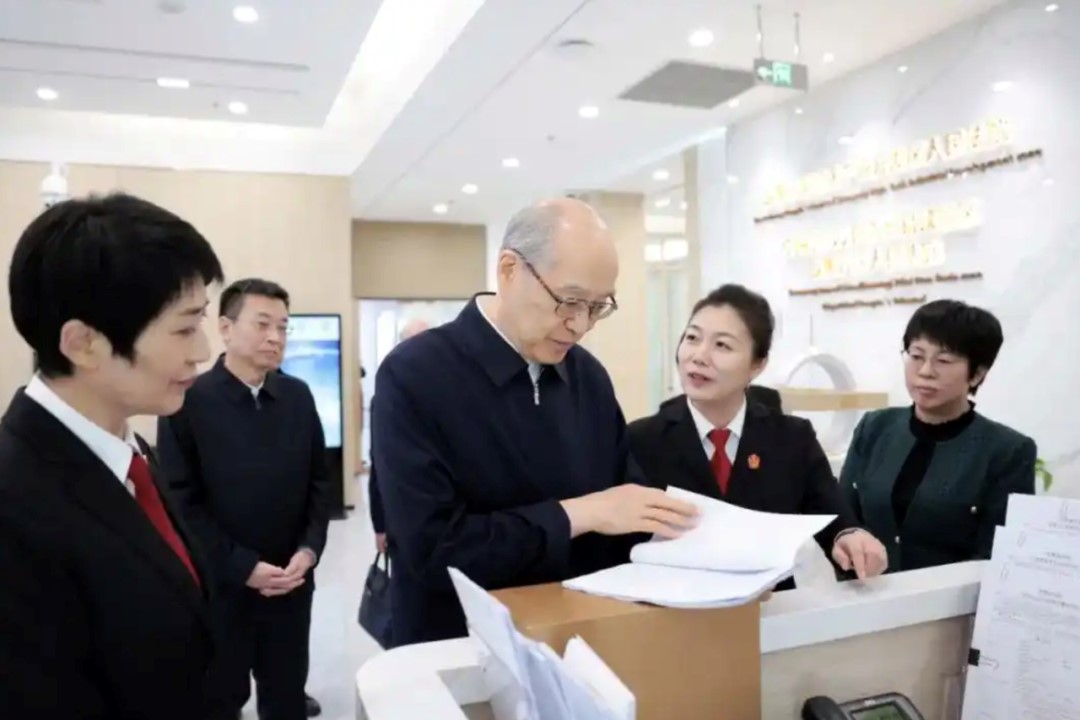
The SPC research team conducted an investigation at the Free Trade Zone Tribunal of the Shenyang High-Tech Zone People’s Court.
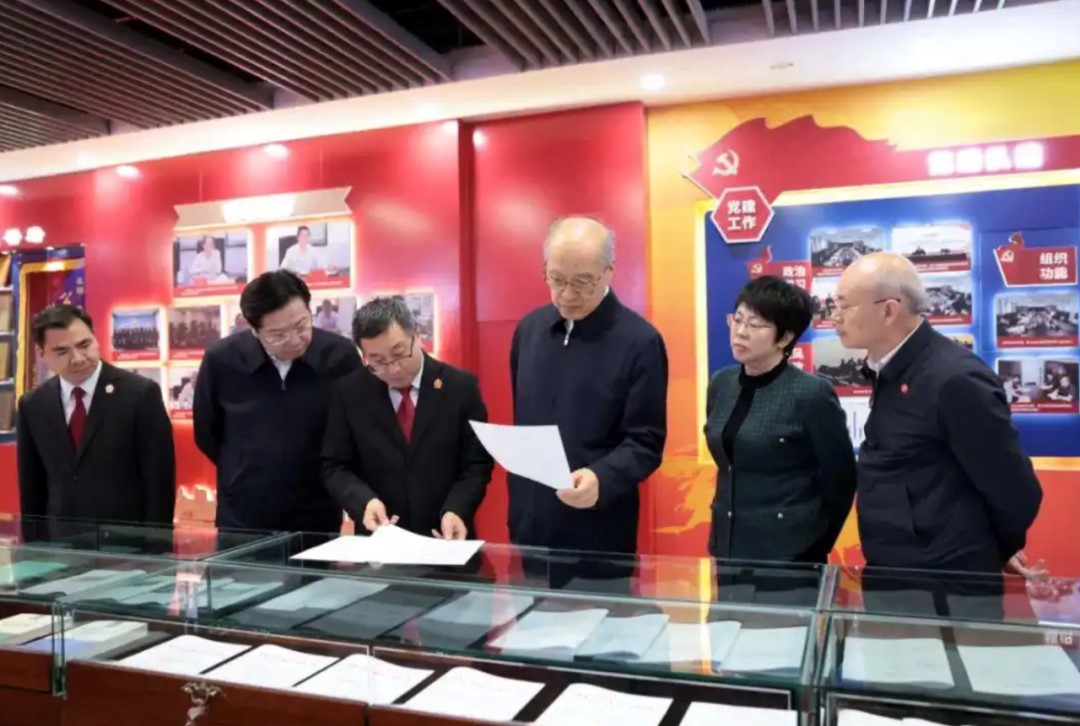
The SPC research team conducted an investigation at the Second Circuit Court of the Supreme People’s Court.
At the Free Trade Zone Tribunal of the People’s Court of Shenyang High-Tech Zone, the research team learned that the tribunal had developed and issued model documents for financial adjudication and copyright protection tailored to practical needs, achieving positive outcomes. At the Second Circuit Court of the SPC, the research team visited and conveyed their regards to judicial officers and staff, encouraging them to focus on their core responsibilities, deepen reforms of the circuit court’s operational mechanisms, and better resolve disputes locally while enhancing services for circuit court proceedings.
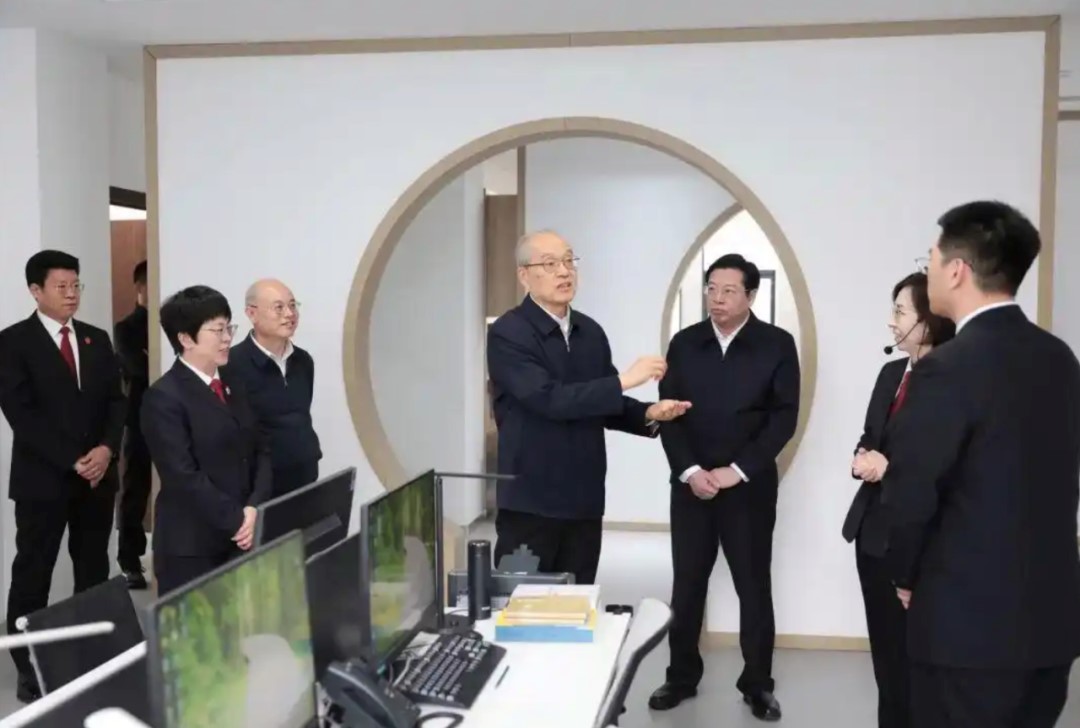
The SPC research team conducted an investigation at the Liaoning High People’s Court.
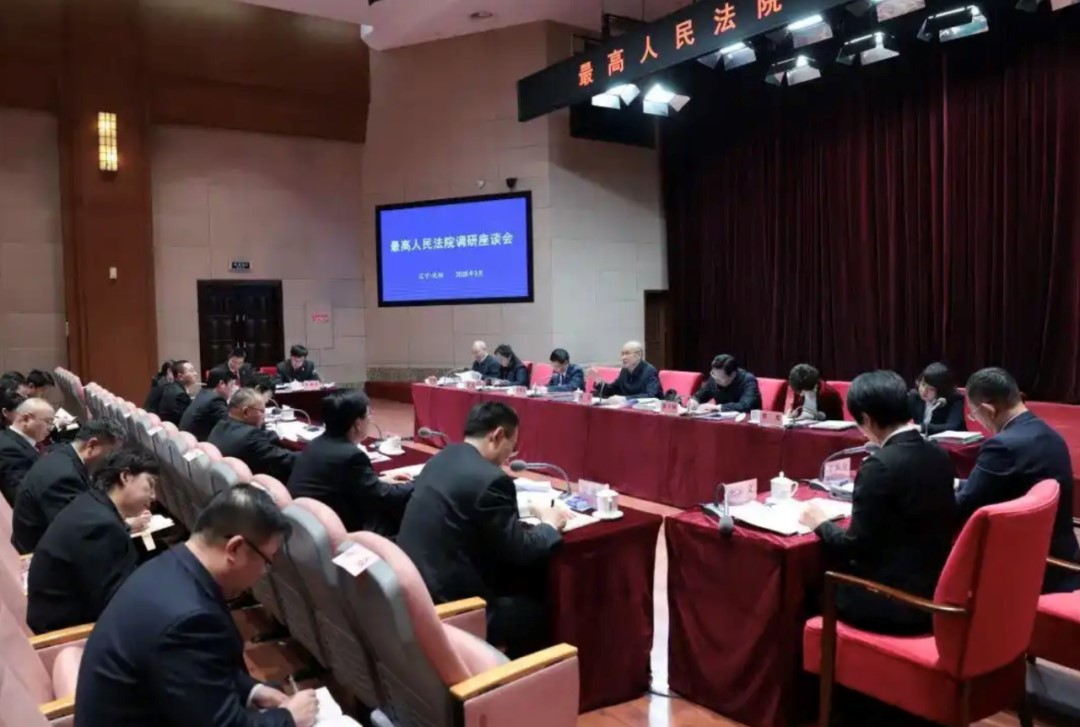
The SPC research team, along with national legislators and members of the CPPCC, listened to a report on the work of the courts in Liaoning Province and held a discussion.
At the High People’s Court of Liaoning Province, NPC deputies Yu Miaojie, Guan Xu, and Wang Hui, along with CPPCC member Jiang Yan, fully affirmed the work of the courts and offered their opinions and suggestions. Zheng Qing, Secretary of the Party Leadership Group and President of the High People’s Court of Liaoning, presented an overview of the court’s work in the province. Huo Bugang, Standing Committee Member of the Liaoning Provincial Party Committee and Secretary of the Political and Legal Affairs Commission, put forward requirements for the work of the courts in Liaoning.
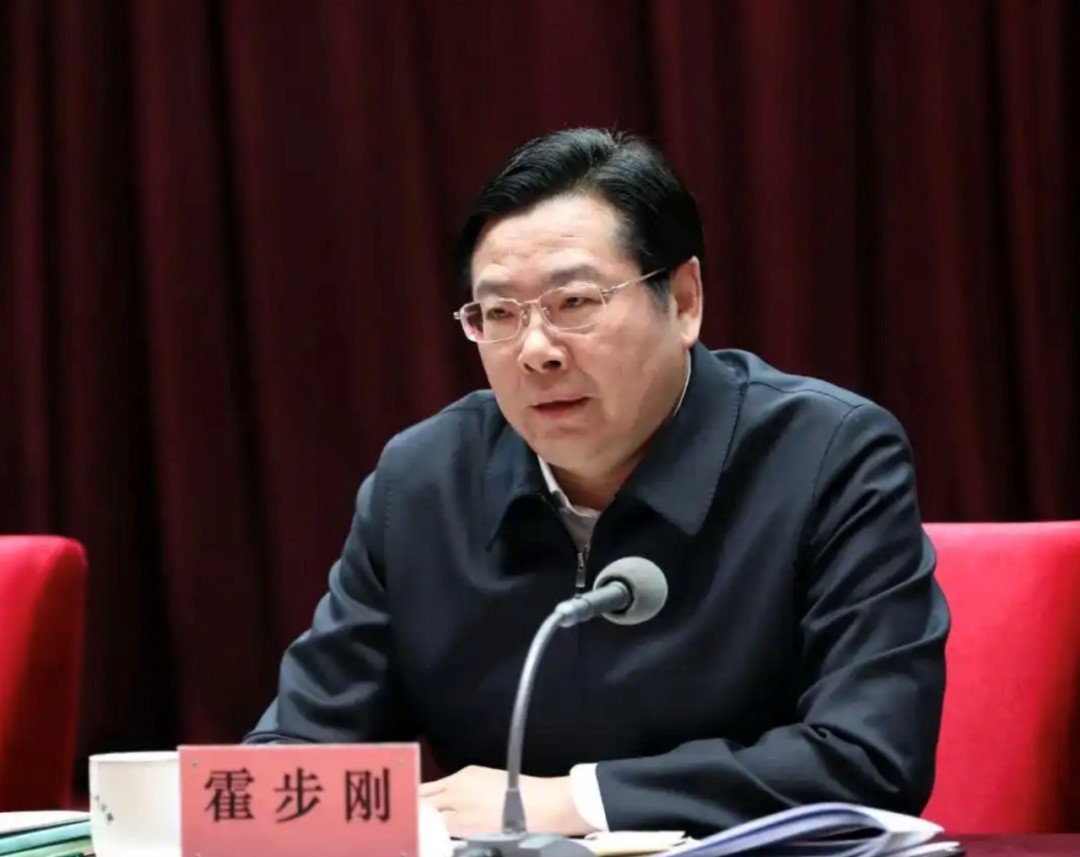
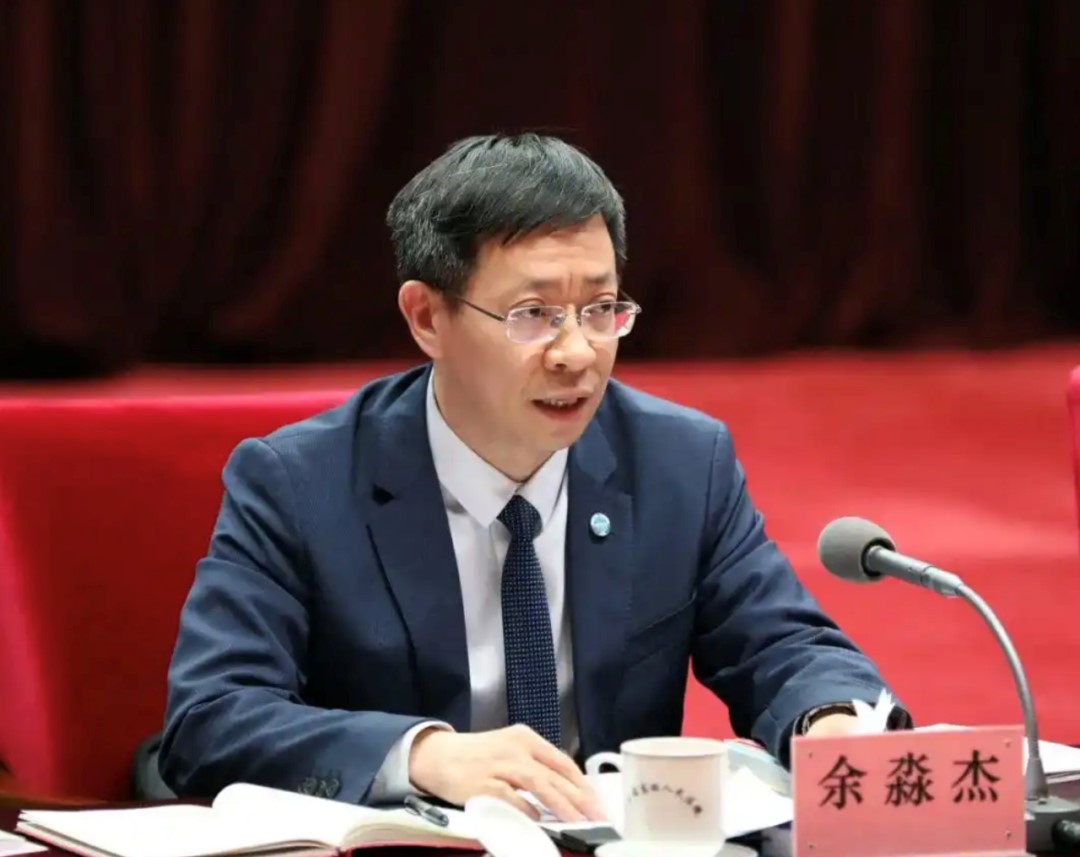
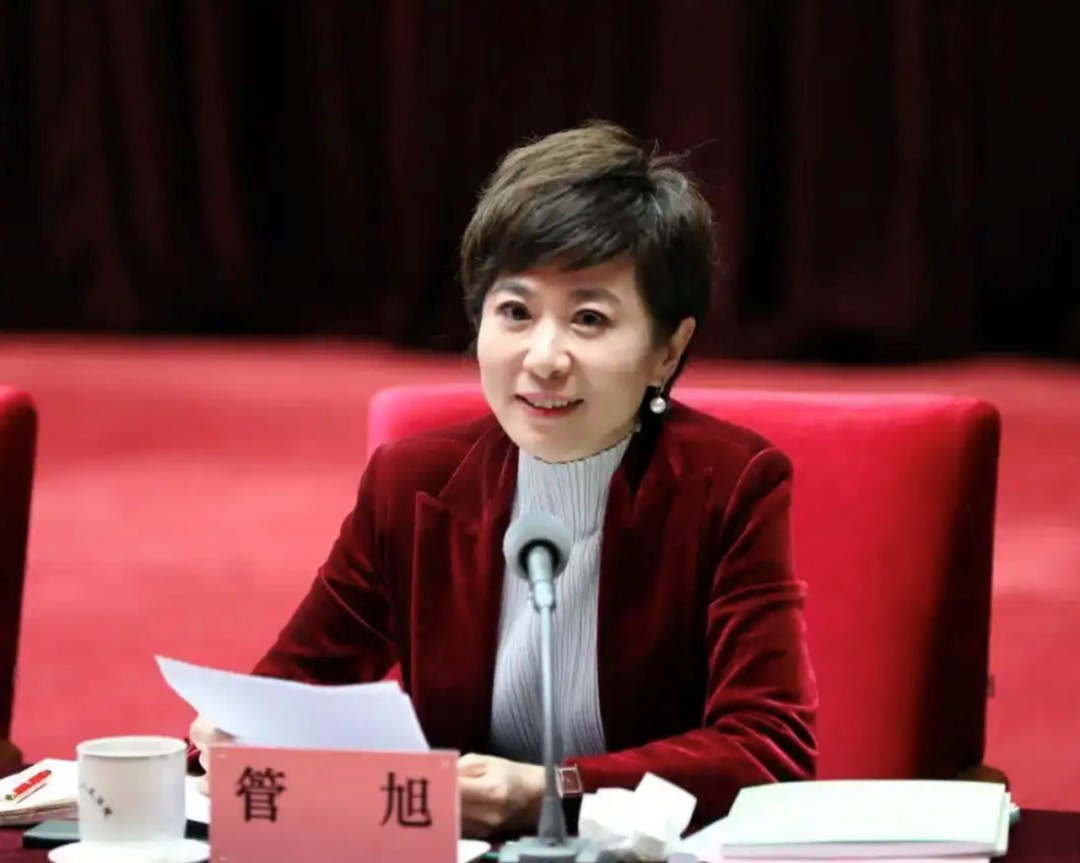
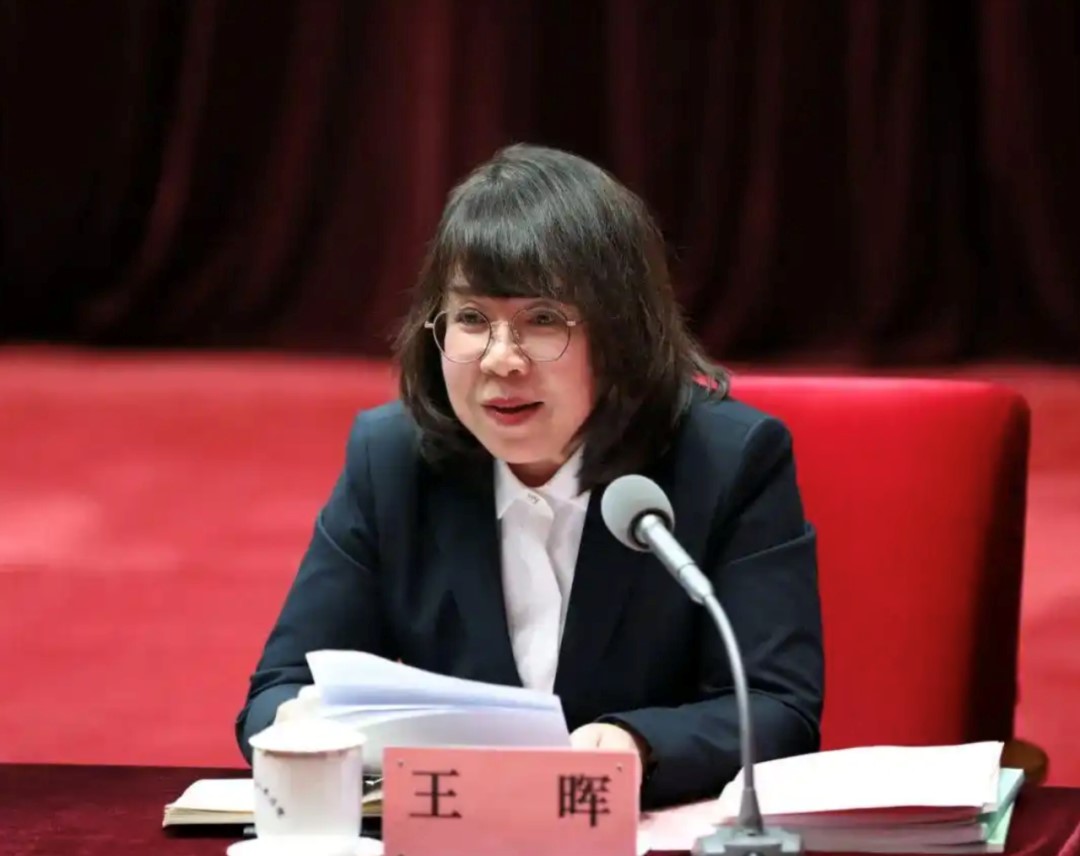
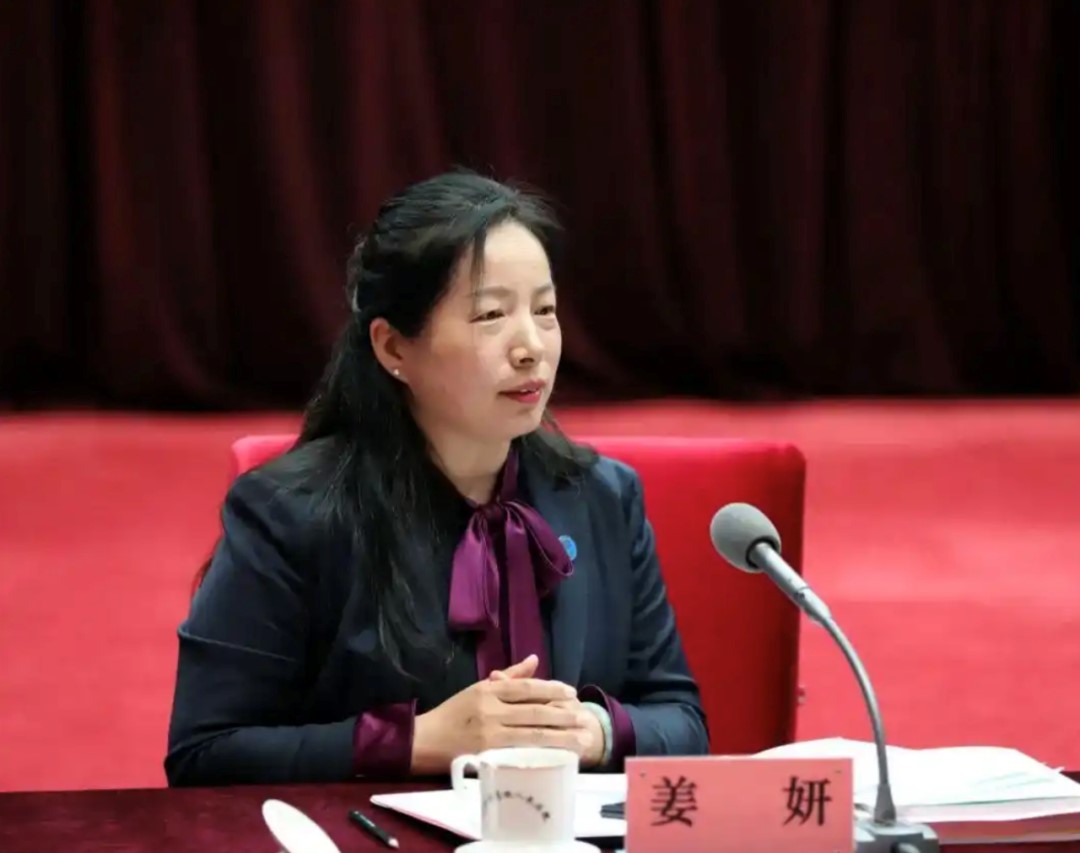
Huo Bugang, a member of the Standing Committee of the Liaoning Provincial Party Committee and the head of the Provincial Political and Legal Affairs Commission, as well as NPC deputies Yu Miaojie, Guan Xu and Wang Hui, and CPPCC member Jiang Yan delivered speeches at the symposium.
“Under the continuous and strong leadership and support of the Liaoning Provincial Party Committee and the provincial government, with the supervision and support of the Provincial People’s Congress and the Provincial Political Consultative Conference, and under the specific leadership of the Political and Legal Affairs Commission of the Provincial Party Committee, the political building of the Liaoning courts has been continuously strengthened, and the quality and efficiency of trials have steadily improved. This shows that as long as we work hard and take practical actions, things will continue to improve!” Focusing on thoroughly implementing the Xi Jinping Thought on the Rule of Law and strengthening trial work in the new era, Zhang Jun put forward three requirements.
We should unswervingly implement decisions. It is necessary to thoroughly implement the spirit of the series of important speeches delivered by General Secretary Xi Jinping during the Two Sessions in light of the actual situation of judicial trials, and meet the requirements of the resolutions of the NPC. We should identify and pinpoint the points of integration and entry for judicial services to support high - quality development. We must thoroughly implement the spirit of the important speech delivered by General Secretary Xi Jinping at the symposium on private enterprises, and implement the decisions and arrangements of the CPC Central Committee regarding special campaigns, so as to ensure strict compliance with the law and equal protection in practice.
We should resolve disputes in a high - quality and efficient manner. To fulfill the main responsibilities of trial and execution, we must effectively resolve disputes. In criminal trials, the criminal policy of combining leniency with severity should be implemented, and the justifications for leniency or severity in accordance with the law should be clearly explained to convince the parties involved. In civil trials, on the basis of strict and legal judgments, the work of explaining the law and reasoning should be carried out effectively, so that the parties can feel the warmth of the judiciary. In administrative trials, the effective resolution of disputes should be ensured, administrative law - based governance should be supervised and supported, and the legitimate rights and interests of the masses should be safeguarded.
We should relentlessly improve the work style. In carrying out the study and education activities on thoroughly implementing the spirit of the eight - point decision of the CPC Central Committee, the key lies in truly empathizing with the parties involved in lawsuits and continuously improving the judicial work style. Litigation services should be more caring, considerate, and heart - warming. When handling cases, the situation of the parties should be taken into account, and judgments that combine law, reason, and emotion should be made. When responding to questions following a judgment, patience is essential, and efforts should be in-depth and practical to dispel doubts, so that the people can truly feel fairness and justice through the continuous improvement of the judicial work style.
During the research, Zhang Jun also held official discussions with Hao Peng, Party Secretary of the Liaoning Provincial CPC Committee and Director of the Standing Committee of the Provincial People’s Congress, and Wang Xinwei, Deputy Secretary of the Provincial Party Committee and Acting Governor of Liaoning. Huo Bugang, a member of the Standing Committee of the Liaoning Provincial Party Committee and Head of the Provincial Political and Legal Affairs Commission, and Zheng Qing, Secretary of the Party Leadership Group and President of the High People’s Court of Liaoning, participated in the research.
